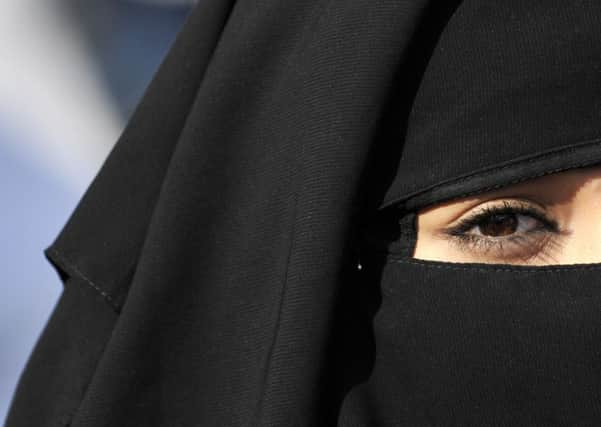German court rules teachers can wear headscarves


The Federal Constitutional Court’s ruling came in the case of two female Muslim teachers from the state of North Rhine-Westphalia, but will also apply to the several other German states that have headscarf bans.
It came after more than 12 years of legal battles, and the issue already made it to the high court in Karlsruhe in 2003, when judges ruled that headscarves were allowed unless banned by specific laws.
Advertisement
Hide AdAdvertisement
Hide AdThat prompted several states to pass those laws. “A blanket ban on religious expression in public schools based upon the outward appearance of educators is not compatible with their religious freedoms,” the court said in a statement.
The North Rhine-Westphalia state law banned headscarves on the grounds they could call into question a teacher’s neutrality and cause classroom disruptions.
But the court ruled a school would need to show “not only an abstract but a sufficiently specific risk” to justify a ban.
The court also said a clause excepting “Christian and western educational and cultural values or traditions” from the state’s ban violated the constitution’s protection against discrimination on religious grounds.
Following the ruling, the state said it would re-examine its law and make the necessary changes.
Nurhan Soykan, general secretary of the Central Council of Muslims in Germany, said in statement that the ruling was “very gratifying”.
Ms Soykan said: “This recognises the reality of life for Muslim women in Germany and allows them to participate as equal citizens in the life of society.”
Across Europe, Muslim women’s clothing has been a lightning rod for disputes over secularism.
Advertisement
Hide AdAdvertisement
Hide AdFrance banned conspicuous religious symbols from state schools in 2004, and banned the wearing of full-face veils in public places in 2010. Belgium has also proscribed the burka or niqab in public.
There are around four million Muslims in Germany, chiefly of Turkish extraction. Disquiet over the role of Islam has become a familiar theme in Germany.
In 2010, Thilo Sarrazin’s book Deutschland Schafft Sich Ab — “Germany is abolishing itself” — topped the non-fiction bestseller list with the thesis that Muslim migration was eroding the country’s identity.
This discontent has begun to find a political outlet. There have been vast “anti-Islamisation” protests by the Pegida movement in Dresden in recent months, while the euro-sceptic party Alternative für Deutschland has made the construction of mosques with minarets a campaign issue.
However, the German chancellor Angela Merkel has affirmed that “Islam belongs in Germany”.